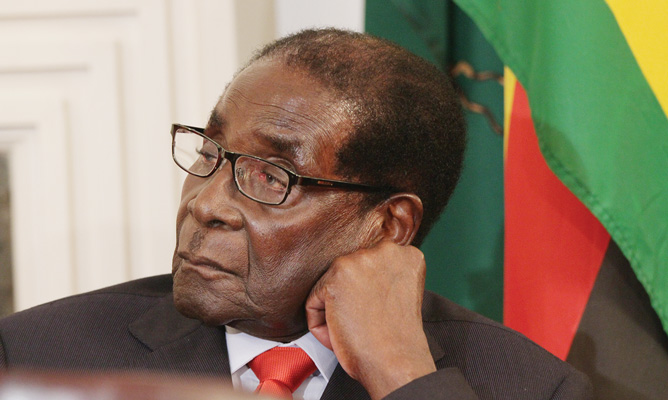
President Robert Mugabe’s proposal to match the civil service minimum wage with the country’s poverty datum line (PDL) is not feasible and would harm the already battered economy, analysts have said.
BY TARISAI MANDIZHA
In his speech during Independence Day celebrations, Mugabe promised to improve the welfare of the civil servants by matching their salaries to the PDL, which stands at $511 as of January 2016.
But local economist John Robertson said government could not afford to increase wages at this point in time as it was already struggling to pay prevailing salaries.
“It’s not feasible; wages cannot be increased unless they cut the size of the civil service. It will be impossible to increase wages right now because we are in a difficult situation where we can’t pay salaries,” Robertson said. Since the beginning of the year, government has failed to keep fixed pay dates for civil servants due to shortage of resources.
Zimbabwe National Chamber of Commerce chief executive officer Takunda Mugaga said the promise by government to increase wages would have negative implications on the rest of the economy and would reverse the debt payback strategy put in place by Finance minister Patrick Chinamasa. Zimbabwe promised its three preferred creditors — International Monetary Fund, African Development Bank and the World Bank — it would have cleared its $1,8 billion debt by June 30.
“It is possible that government can increase wages, but such public promises have the implication of exposing policy inconsistency by government given its commitment to arrest the wage bill. The president is promising better wages while minister Chinamasa wants to review the wage bill. this shows disharmony in government,” Mugaga said. “I think the wage issue is one of the most serious matters in Zimbabwe. The president has spoken of increasing wages but to push for wage increases has serious implications on the economy. This would mean another showdown with the IMF.”
- Chamisa under fire over US$120K donation
- Mavhunga puts DeMbare into Chibuku quarterfinals
- Pension funds bet on Cabora Bassa oilfields
- Councils defy govt fire tender directive
Keep Reading
Chinamasa is working on reforms to cut the civil service wage bill by half as a way to create fiscal space to finance capital and social projects.
According to the recent wage report which was released by the Labour and Economic Development Research Institute of Zimbabwe, the public sector wage bill has been growing at a faster rate than the real gross domestic product (GDP), and such a growth is unsustainable.
According to the report, in 2014 growth in the public wage bill was 16,5% compared to the real GDP growth rate of 3,1% for the same year.
“In Zimbabwe, the rate at which the wage bill is increasing is far higher than the rate at which the economy is growing. The public sector wage bill is now compromising fiscal and debt sustainability, and jeopardising growth by generating excessive deficits and crowding out growth-enhancing public investments,” the report says.
“There is urgent need to stimulate economic growth and similarly reduce the wage bill. In the short-to-medium term, the government should implement a wage policy that is fiscally sustainable.”
The report shows that the Zimbabwe public sector wage bill has increased from 2013 to 2014 by an average of 26,5%. The report recommends putting in place fiscal rules that put a ceiling on the public sector wage bill and allocation of 30% of the budget to development expenditure, implying that recurrent expenditure — including the wage bill — should not exceed 70% of the budget.
It recommended that government should ensure that expenditure on wages and benefits do not exceed 35% of taxes and is not more than 10% of gross domestic product.
The report mandated government to put in place a biometric payroll registration of public sector workers and pensioners and to downsize to make it leaner and efficient by reducing the number of ministries, resuscitate the national productivity institute and align the public service salary negotiations with the national budget process.












